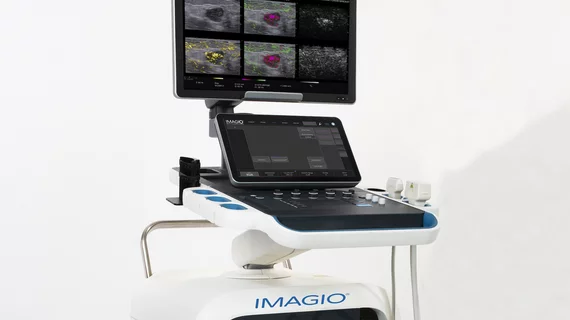AMA adds code to allow for reimbursement of opto-acoustic imaging modality
The American Medical Association (AMA) has introduced a new Category III Current Procedural Terminology (CPT) code to allow providers to seek reimbursement for the use of opto-acoustic imaging in diagnosing breast cancer.
This new imaging technique combines laser optics, soundwaves, and artificial intelligence for anatomical breast imaging. Specifically, it produces unique ultrasound scans that map blood flow in and around breast masses to help radiologists determine if cancer is present.
By detecting two hallmark indicators of cancer—angiogenesis and deoxygenation—opto-acoustic imaging offers a safer alternative to ionizing radiation and contrast agents, thus reducing potential harm to patients. It also could mitigate the need for painful biopsies through simpler identification of benign breast lesions.
The coding update will allow healthcare organizations to properly bill insurance plans for use of the Imagio breast imaging system, developed by Seno Medical, who pioneered use of the new opto-acoustic modality.
In a statement sent to Health Imaging, Seno said it is collaborating with the Pinnacle Health Group to provide coding and claims support for use of its systems to ensure patient access.

